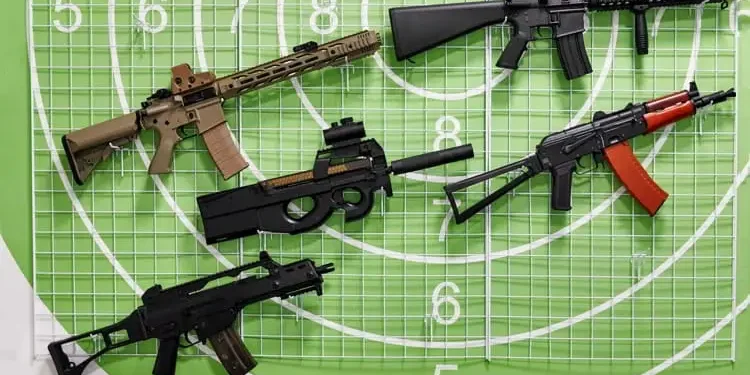Gun laws vary in every country. It is important to understand that gun ownership is a privilege, not a right. Gun laws are strictly enforced, and draconian measures apply for anyone found with an unlicensed gun or ammunition.
You can apply for a gun permit as a legal resident in Panama, Belize, Nicaragua, and Ecuador.
You’ll be limited in each case as to the number of guns you can own and also restricted as to the types of weapons you can keep, but you can get a handgun in each of these countries.
Central America Gun Laws
1. Panama
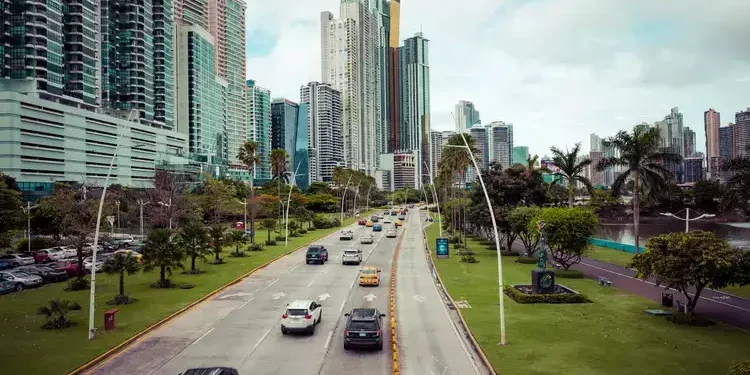
Panama doesn’t allow hunting, so large caliber rifles aren’t allowed. However, you can buy and own a shotgun in this country. If you are looking for sun, pristine beaches, palm trees, exceptional tax breaks, and concealed carry, Panama is your definitive destiny.
Panama almost has it all.
Residency permits are easy and fast to obtain, the cost of living can range from affordable to really cheap depending on where you base yourself, services are developed in the city, private health care is more affordable and of high quality, and the economy is booming.
Also, Panama is the safest country in Central America. Some believe this to be related to private firearms ownership.
The main advantages of Panama’s gun laws, is that a gun permit is rather simple to obtain, but it’s not a quick process.
Short-barreled rifles and shotguns are legal in Panama, and concealed carry is permitted. Open carry is prohibited. Above all, in Panama, offenses involving guns lead to significant consequences.
To get a permit you must:
- Be 18 or older, with those desiring carry permits having to be 21;
- Submit a DNA sample;
- Submit a urine sample to test for drugs;
- Complete theory and practical tests.
A history or suspicion of domestic violence will cause your application to be denied. A gun permit is renewable every 10 years.
Importing guns to Panama requires you to:
- Provide a picture of the gun;
- Provide of copy of the receipt;
- Provide an authenticated copy of the gun’s registration from your home country;
- Provide an authenticated copy of your passport
Being a small, gun-controlled country, the gun culture is also very small. There are few gun stores around, and those with a decent selection are increasingly scarce.
In short, expect prices to go ridiculously higher than normal here.
2. Belize
There Are Three Classes Of Gun Ownership In Belize:
– Farm Shotgun
Licensed for the protection of livestock from predators and vermin on your farm. However, the size of the farm or vermin does not really matter. The weapon should only be taken off your farm once a year to get relicensed at the district police station.
– Hunting License
Rifle or Shotgun. These can be carried openly but must be unloaded and, in a case or wrapped in cloth if in towns or villages.
Non-Belizeans are also supposed to buy hunting tags for some specific game animals. Hunting is a popular pastime in Belize, and while many animals are protected, specific hunting seasons are in place for plenty of non-endangered game animals.
This is one of the main situations that justify gun ownership in Belize.
– Special Protection License
This license covers the right to carry a concealed sidearm or—much less commonly—a pump-action shotgun for security or self-defense.
Being able to show a genuine need for a Special Protection License makes the approval process easier. Anyone operating a business that carries cash, women living alone, anyone spending time in remote areas, or even elderly couples can make the argument that they need a gun for special protection.
However, you can’t claim one just because you want it, nor can you expect to import your entire arsenal from your home country.
Once a license for a specific gun has been granted, you can purchase the gun locally from an authorized dealer. If the model you have a license for is unavailable, you can import one of your own.
3. Gun Laws In El Salvador
Due to violence in El Salvador, gun laws are directed at lowering and regulating private gun ownership.
In short, you must show no criminal record and be at least 21 years old, or 24 for a carry license, pay tax, and do a written test. The wait is short, about three hours total.
4. Costa Rica
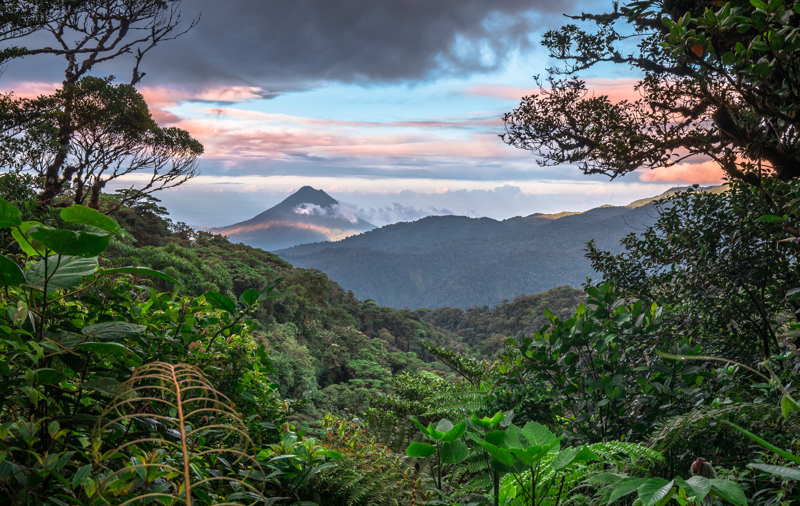
In order to obtain a gun license in Costa Rica you must obtain permanent residency or citizenship. You will also need a clean criminal record and a psychological exam.
Once you meet the requirements you are allowed to obtain a range of firearms, up to three handguns, three rifles (for sport, as hunting is illegal for nature conservation), and semi-automatic weapons with calibers between 5.6 to 18.5 millimeters. Guns may be bought at a local licensed gun shop or from a private individual.
To import your guns, you must submit an application with the Ministry of Public Security and declare the weapons once they arrive in customs which will hold the guns until you do the registration process.
5. Guatemala
First, Guatemala’s Constitution gives individuals the right to own a gun. And, if they want to own one for personal use, this does not require any exhaustive approval from the government.
Second, to obtain a license for owning a gun in Guatemala, you have to meet the set criteria, which includes having a clean police record, no mental illness, and for locals a proven service in the police or army.
Gun Laws In South America
6. Colombia
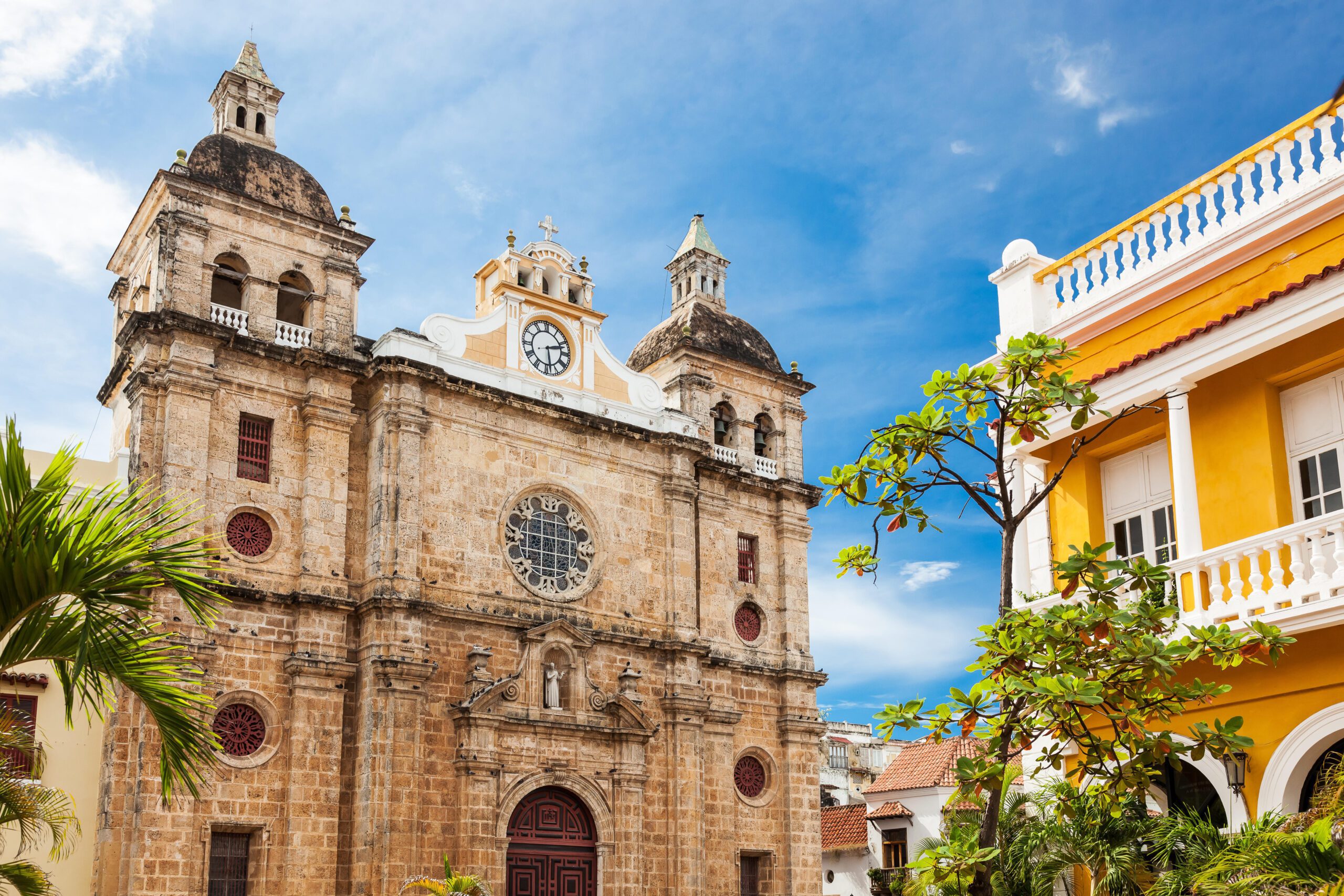
Civilians in Colombia may possess firearms only through a permit issued at the discretion of the local authorities. It is restricted due to security reasons.
In order to own a gun you must be 18 or older and have your guns registered with the military because they hold the national gun registry.
To own small caliber handguns and shotguns you must acquire a license for the purpose of self-defense. The constitution has a ban on civilians carrying their guns at political meetings and elections.
Higher caliber handguns, shotguns or semi-automatic firearms are prohibited unless there are “exceptional circumstances.”
Bottom line, this is one of the least gun-friendly countries in the Americas.
To apply for a gun permit in Colombia, you must:
- Have a valid reason for owning one;
- Be 18 years or older;
- Pass background check (criminal, mental health, and addiction);
- Have no record of domestic violence;
- Theory and/or practical test required (for surveillance or private security work);
- Licenses must be renewed every 10 years (guns restricted to your property), three years (self-defense guns), or annually (restricted weapons);
- Number of guns allowed is limited to two per person;
- No more than nine rounds per clip allowed, 10 rounds for .22s;
- You may have to join the military reserve to be allowed a permit.
To transport weapons for sanctioned events like hunting and shooting sports, guns must be disabled, i.e., firing pin removed stored separately.
7. Brazil
In Brazil, civilian gun ownership is allowed. You need to be at least 25 years old, and register the firearm with the Federal Police. Handguns and semi-automatic weapons are allowed, assault weapons are prohibited.
Permits must be renewed every 10 years. And, there are penalties for illegal firearm possession.
Most importantly, yYou need to obtain a permit to carry firearms outside of your house. You need to state your reason for carrying the weapon, complete a course on firearm handling and demonstrate that you can strike a target from 16 and 23 feet away with 60% accuracy.
Most importantly, you must also show a clean criminal background, and a mental health certificate from a state approved psychologist. The permit is valid for five years.
8. Paraguay
Automatic weapons are prohibited. In order to carry a firearm, you must prove a clean criminal record, be at least 22 years old and obtain a certificate on gun safety.
For a carry permit you must have an exceptional reason. These include:
- Self-defense;
- Gun collecting;
- Sport.
A background check is necessary. This will include a criminal check, mental health review, and proficiency test.
9. Uruguay
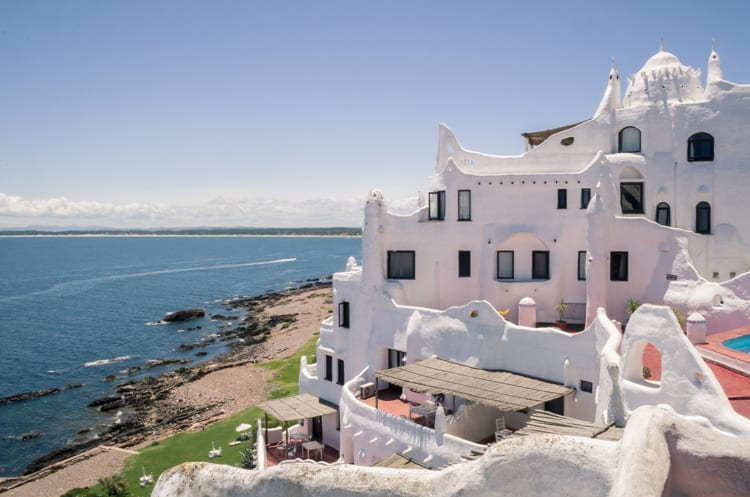
Uruguay gun permits allow firearms on a shall-issue basis. Your gun caliber has to be smaller than .50 BGM.
You must have a license to possess a gun, and to get a license you must show a genuine reason for wanting a gun, which can include:
- Hunting;
- Target shooting;
- Personal protection;
- Security.
To apply for a license, you must:
- Be 18 years or older;
- Submit a background check that addresses mental health history, criminal background check, and specifically domestic violence;
- Complete required training.
So, you’ll need to renew your carry permit annually and your competency certificate every five years, but the possession certificate is only renewable every 10 years.
Authorities keeps records of all sales and permits for guns.
10. Gun Laws In Argentina
Argentina gun laws allow gun permits only for citizens. To apply for a permit, you must go through the Credential of Legitimate User of Firearms, CLUSE, in Spanish.
Most importantly, you must be 21 years or older, prove a clean criminal background, provide details of where the gun will be kept, complete a gun training course, show proof of income, get fingerprinted, and pass a physical and psychological exam.
Also, you must have a legitimate reason for having a gun, like target shooting, hunting, or in real cases of danger to yourself.
Most importantly, the penalty for illegal gun possession is two years and a fine. And, for illegal possession of weapons of war (military weapons), the penalty is up to eight and-a-half years in prison.








